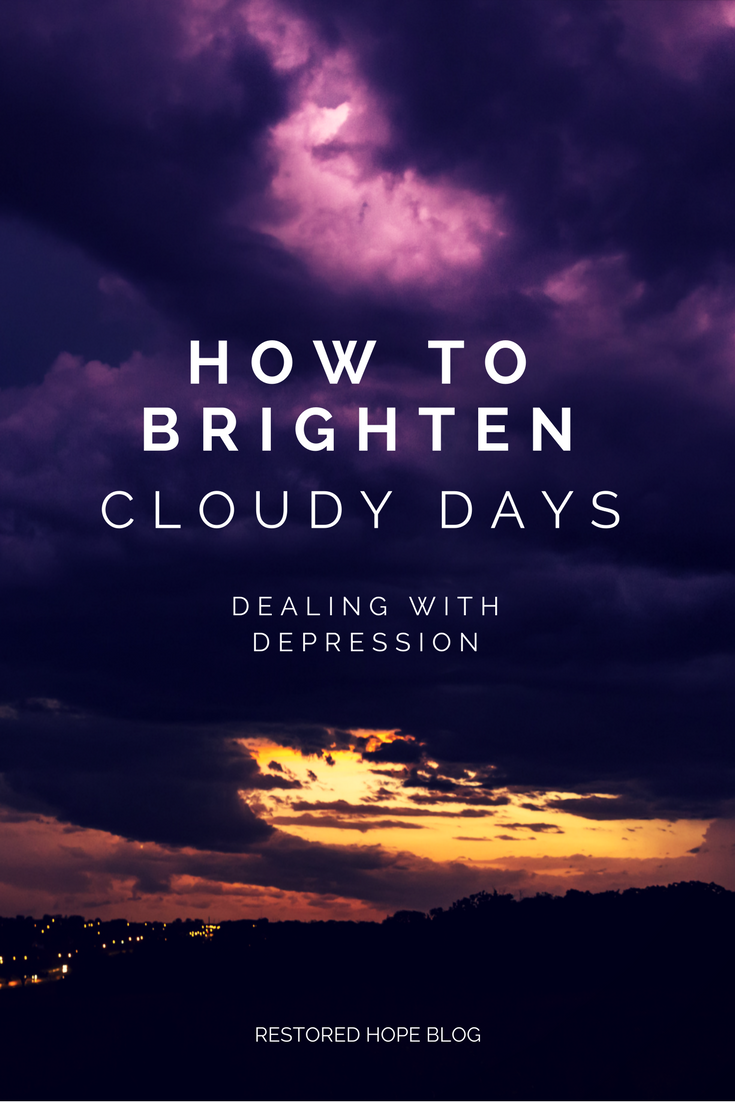What might be some reasons you could wonder if you have depression? It could be that you’ve noticed you’re feeling unhappy or gloomy a lot lately, and it’s hard for you to tell if it’s just a bad mood, or if there’s something more serious going on. Or maybe you’ve been feeling this way for a long time, but it’s so much a part of your personality and who you are that it just seems normal at this point. Either way, it can be hard to discern whether what you’re experiencing is normal, or if it could be categorized as depression.
If you’re struggling to know if you're experiencing depression, here are some symptoms to look out for:
Sadness is a common mood for you.
On a day to day basis, you might find yourself feeling discouraged or hopeless. Or maybe you feel numb, or like you don’t have any feelings at all. But if someone were to stop you and ask about how you’re feeling, you might start to cry or be overcome by feelings of sadness. Sometimes you might switch back and forth between sadness and irritability or frustration with others.
The things you used to love to do don’t seem fun anymore.
Do you find yourself thinking, “I just don’t care anymore”? Oftentimes, the things that used to make you happy or bring you a sense of peace or joy lose that power. It can feel like there’s nothing you really want to do, or it takes too much energy to do things you used to love. You might notice yourself spending less time with people and avoiding social situations.
You’ve noticed your weight fluctuating significantly.
It may be that you feel as though you’ve lost your appetite, and you have a hard time feeling any desire to eat, which causes you to lose weight. Or, on the other side of the coin, you could be eating more and having more cravings for carbs or sweet foods, which may cause you to gain weight.
You’re sleeping a ton, you feel lethargic, and you’re tired all of the time.
Another common symptom of depression is sleeping longer than normal, taking a lot of naps during the day, or having a hard time getting out of bed in the morning. You might feel lazy or tired all of the time. You may have lethargic movements and speech, in a way that is noticeable to others as well. Has anyone pointed these things out to you? You could also notice fatigue without any apparent cause. You might find normal daily tasks, like getting up, showering, or cooking a meal, to be too exhausting to complete.
Insomnia feels like a familiar friend.
If you find yourself waking up in the middle of the night, waking up early without being able to fall back to sleep, or having trouble falling asleep at night, depression could potentially be the culprit.
Others tell you that you seem jumpy, and you feel restless.
Your restlessness could show up as fidgeting, pacing, or being unable to stand still. Likely, people around you may have noticed some of these things and mentioned something to you before.
A core belief you hold about yourself is that you’re worthless, or you’re consumed by feelings of guilt.
You might notice constant feelings that you have no worth or value, which can feel true even if they aren’t based in any facts. Guilt over past mistakes or wrongs could be haunting your day-to-day thoughts.
You have a hard time focusing, remembering things, or making decisions.
You might walk into a room and forget what you’re looking for. Or you can’t read a book or keep your mind on a task for more than 5 minutes at a time. A simple decision, like what to make for dinner, can sometimes send you into such a tizzy that you feel unable to do anything.
You have thoughts about death, and sometimes even suicidal thoughts.
There can be a wide range of suicidal thoughts: it can start with wishing not to not be alive any longer and worsen to seriously considering or planning a suicide attempt. If you are experiencing thoughts or plans of suicide, please call 911 immediately or drive to your nearest ER facility.
Do any of these symptoms sound familiar to you? If four or five of them sound true, it may be time for you to consider seeing your primary care physician or a therapist to help you decide if you’re experiencing clinical depression. Your healthcare provider can support you and help you make decisions to take care of yourself. You are worth receiving care and relief from your pain.
This article was originally posted on March 9, 2017.











